Blackbirds are protected by the Migratory Bird Treaty Act. They can become a problem for homeowners when they nest near properties. This can cause damage and spread diseases through their droppings. But, you can keep them away safely and legally with natural methods.
Key Takeaways
- Blackbirds are federally protected, making it illegal to interfere with their nests or manipulate them directly.
- Preventive measures are key to managing blackbird presence on your property legally and humanely.
- The WhirlyBird Repeller, a Peregrine Falcon-inspired device, is a leading bird deterrent option for keeping blackbirds away.
- Household items like aluminum foil, fishing wire, and baking soda can be used as natural bird repellents.
- Modifying your landscape and food sources can help make your property less attractive to blackbirds and other nuisance birds.
Understanding Blackbird Behavior and Habits
Blackbirds, including crows, pigeons, and robins, are known for trying to get into our homes and gardens. Knowing their behavior helps us use bird proofing techniques to discourage birds and prevent bird nesting.
Common Types of Nuisance Blackbirds
Common grackles, red-winged blackbirds, and brown-headed cowbirds are the main troublemakers. They are aggressive and often take over feeders and nesting spots.
Why Blackbirds Choose Your Property
Blackbirds are drawn to places with lots of food, like pet food outside and bird feeders. They also look for water, like fountains, to drink. Plus, they might choose your place for a nest if it has good trees or structures.
Seasonal Patterns and Migration
Blackbird numbers change with the seasons. Some stay all year, while others move around. Knowing this helps you adjust your bird proofing techniques to keep them away.
“Smaller birds find it hard to use tube-style feeders with short perches, which can deter grackles.”
By understanding the types of blackbirds, why they pick your place, and their seasonal changes, you can better keep them out. This helps you discourage birds and prevent bird nesting on your property.
Legal Considerations for Bird Control Methods
Dealing with nuisance blackbirds comes with legal rules. The Migratory Bird Treaty Act protects many blackbird species. This means homeowners can’t directly mess with their nests or numbers. Instead, they should use preventive methods.
Every state has its own bird handling rules. It’s key to check local laws before acting. Some states let you move or remove certain birds, while others are stricter. Talking to a wildlife exclusion pro can make sure you follow the law and don’t hurt protected birds.
| Bird Species | Legal Considerations |
|---|---|
| Geese | Problematic due to large size, prolific breeding, and tendency to congregate in public spaces |
| Pigeons | Considered pest birds due to prolific breeding and destructive behaviors |
| Crows | Known to damage crops, particularly during planting and harvesting seasons |
| Grackles | Gather in urban areas, raiding crops and causing economic losses |
| Sparrows | Can nest in or around buildings, causing structural damage and potential fire hazards |
| Seagulls | Problematic due to scavenging behavior and adaptability to urban environments |
| Starlings | Aggressive, compete with native species, damage crops, and disrupt local ecosystems |
Knowing the law and getting help from experts is key. Homeowners can use humane bird deterrence and bird control methods. This way, they can handle nuisance blackbirds without breaking the law or harming the environment.
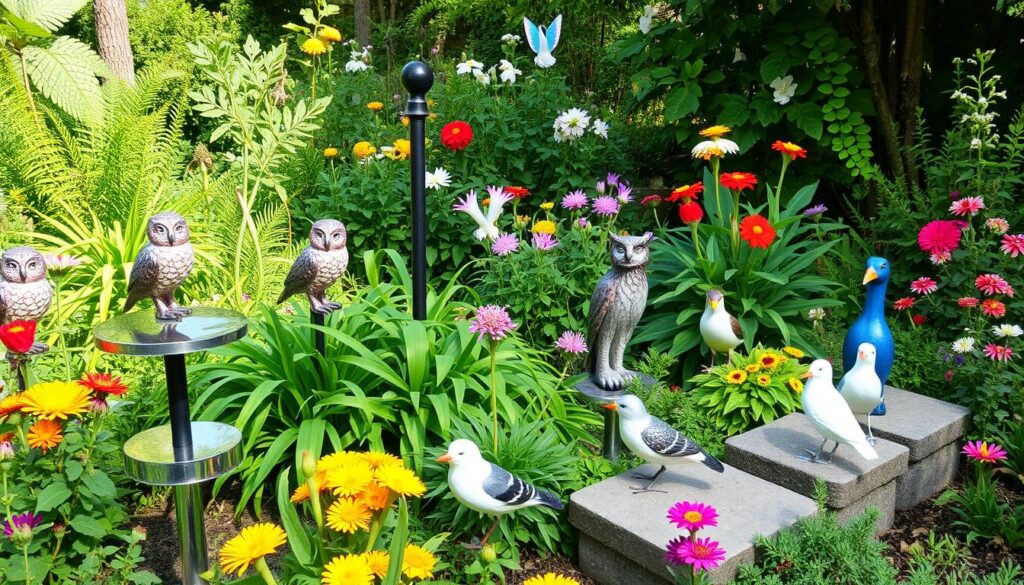
“The key to successful blackbird management is a comprehensive approach that combines legal compliance with effective prevention strategies.”
How to Keep Black Birds Away: Essential Prevention Strategies
To keep blackbirds away, you need a few key steps. First, stop them from getting food, nesting spots, and entering your place. Use bird proofing to discourage them and stop nesting on your property.
Removing Food Sources
Getting rid of food sources is key. Cut back shrubs and holly trees with berries. Keep your lawn short to reduce hiding spots. Store pet food and water when not in use. Use saltwater instead of freshwater to keep birds away.
Modifying Landscape Features
Change your yard to make it less inviting to blackbirds. Trim hedges and remove tall plants that birds like. Use shiny things like mylar balloons to scare them off.
Securing Building Entry Points
Blackbirds might try to nest in your home. Watch for holes and seal them up. If you see a nest, gently remove it with a stick to scare them away.
With these steps, you can keep blackbirds from making your place their home. This will help avoid problems caused by these birds.
| Bird Species | Nuisance Behavior | Preventive Measures |
|---|---|---|
| Pigeons | Messy droppings in urban areas | Remove food sources, use deterrents like reflective surfaces |
| Seagulls | Scavenging food from outdoor eating areas and garbage bins | Secure trash cans, use covers on outdoor eating areas |
| Starlings | Noisy, large flocks in urban and suburban environments | Modify landscaping to remove nesting sites, use sound deterrents |
| Sparrows | Attracted to food scraps in urban settings | Eliminate accessible food sources, use bird-proof feeders |
| Crows | Noisy, contribute to litter problems in residential areas | Apply scent-based repellents, use visual deterrents |
Natural Repellents Using Household Items
Keeping black birds away doesn’t need fancy solutions. Many effective, non-toxic bird repellents are found at home. Using common items, you can make natural deterrents that are good for the environment and your wallet.
Aluminum foil is a great natural bird deterrent. Place foil strips under soil or around plants to create a shiny barrier. Birds won’t like it. You can also hang shiny streamers or aluminum pie plates to reflect sunlight and bother birds’ eyes.
Another clever trick is to sprinkle baking soda where birds land. The texture is off-putting to them. For more protection, use double-sided duct tape on these spots. It makes the surface uncomfortable for birds.
To make a strong bird repellent spray, mix 6 drops of liquid dish soap, 2 tablespoons of cayenne pepper, and 1 gallon of water. Spray this around your property to keep birds away with a bad smell.
| Household Item | How it Deters Birds |
|---|---|
| Aluminum Foil | Creates a shimmering, reflective barrier that unsettles birds |
| Baking Soda | Discourages birds from landing due to the unfamiliar texture |
| Cayenne Pepper Spray | Produces an unpleasant, bird-deterring scent |
| Double-Sided Duct Tape | Makes perching surfaces uncomfortable for birds |
By using these simple, non-toxic bird repellents and bird deterrents, you can keep black birds away. You won’t need harsh chemicals or spend a lot of money.
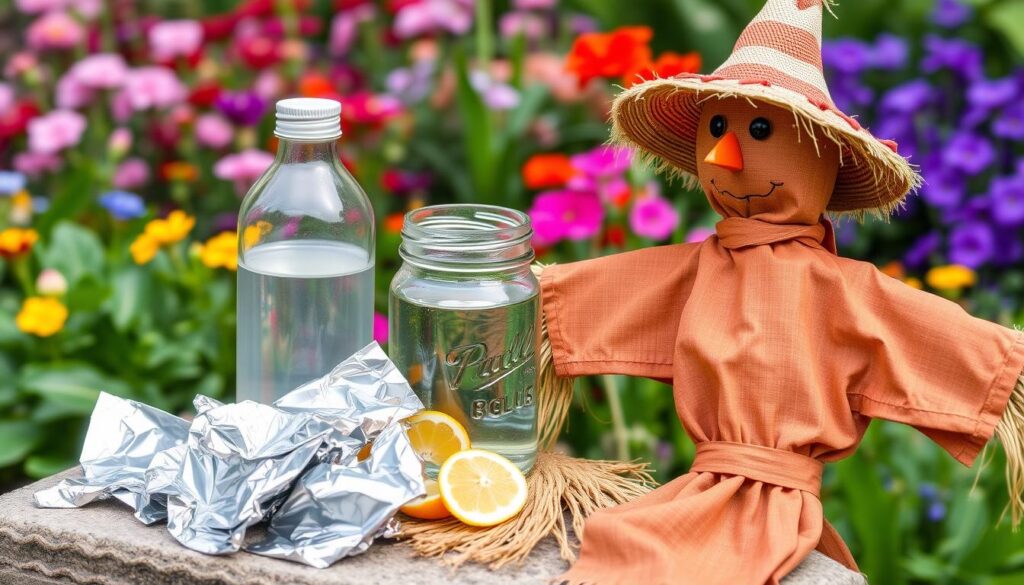
Effective Visual Deterrents for Blackbirds
Visual deterrents are great for keeping blackbirds away. They create a disturbance or illusion that scares birds off. You can use reflective materials or motion-activated devices to scare them away.
Reflective Materials and Devices
Shiny objects like CDs, aluminum foil, or Mylar balloons can scare blackbirds. Hang them around your yard to create a dazzling effect. The WhirlyBird Repeller is even better. It spins, wobbles, and vibrates, making sounds like a Peregrine Falcon.
Motion-Activated Solutions
Blackbirds hate sudden movements. Use motion-activated sprinklers or lights to scare them. You can also try predator decoys like plastic owls or rubber snakes. Just remember to move them often.
| Visual Deterrent | Effectiveness | Advantages |
|---|---|---|
| Reflective materials (CDs, Mylar balloons, aluminum foil) | High | Inexpensive, easily available |
| WhirlyBird Repeller | Very high | Combines multiple scare tactics, mimics a natural predator |
| Motion-activated sprinklers/lights | High | Startles birds, can be automated |
| Predator decoys (plastic owls, rubber snakes) | Moderate | Relatively inexpensive, must be moved regularly |
Using different visual bird scare tactics can keep blackbirds away. This protects your property from their nuisance.
Sound-Based Bird Deterrent Methods
Sound-based bird repellents are great for keeping black birds away. They use sounds to make your place less welcoming to birds. This helps keep them from coming back.
One way to do this is with predator calls or distress signals. These sounds make birds think there’s danger. It can make them leave up to 40% faster.
Ultrasonic devices also work well. They make high-frequency sounds that bother birds but not people. This keeps many bird species away.
Other tools like propane cannons and whistling devices also help. They make a lot of noise. This makes birds not want to stay.
It’s key to change the sounds or patterns often. This keeps birds from getting used to them. This way, your bird control stays effective.
Sound-based bird deterrents are kind to birds and the environment. They use sound to keep birds away. This helps protect your property from damage.
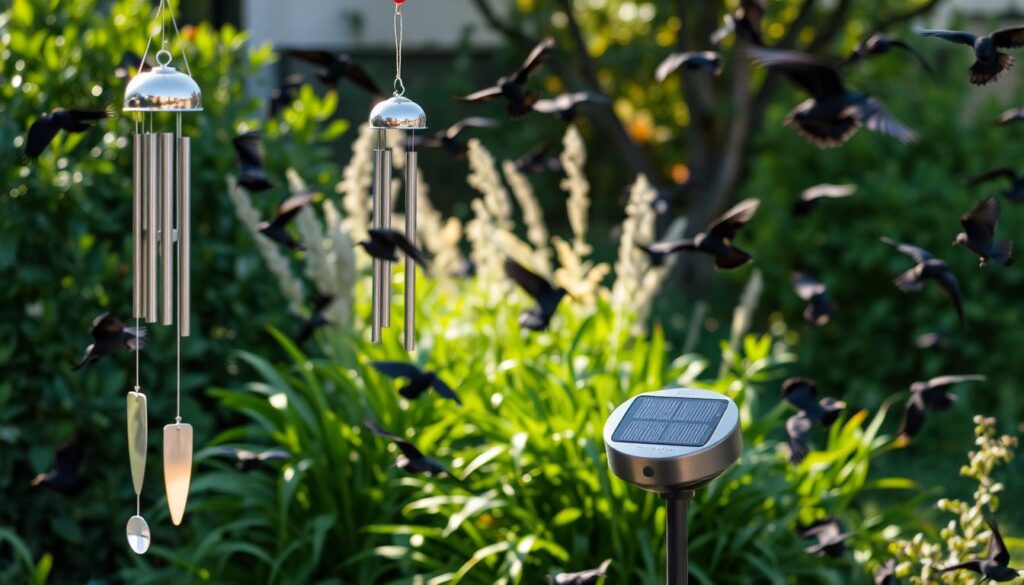
In short, sound-based bird repellents are a smart choice. They use different sounds to keep black birds away. This makes your place safer and more peaceful for everyone.
Essential Oils and Scent-Based Repellents
Homeowners can use natural, non-toxic bird deterrents to keep blackbirds away. Essential oils and fragrances that birds dislike are effective. Peppermint, citrus, and cinnamon are some of the scents that work well.
Most Effective Essential Oil Combinations
To make a strong bird repellent spray, mix 14 drops of peppermint and lemon essential oils. Add 1/2 cup of white vinegar and 1/2 cup of water. This blend can keep blackbirds from your yard.
Garlic spray is another natural option. Steep 8 cloves of garlic in 2 cups of olive oil. For a cinnamon solution, mix 3 parts water with 1 part ground cinnamon.
Application Methods and Frequency
Apply these non-toxic bird repellents to areas where blackbirds like to perch or nest. This includes eaves, ledges, or trees. Reapply every few days or after rain to keep it working as a bird deterrent.
It’s important to reapply often. The scents can fade, letting blackbirds come back to their favorite spots.
“The active ingredient Methyl Anthranilate (MA) irritates the noses and throats of birds, making them stay away when present in aromatic bird repellents.”
Using these non-toxic bird repellents can help keep blackbirds and other pests away. With regular use and checking, these natural scents can offer a lasting, green solution to bird problems.
Physical Barriers and Exclusion Techniques
Physical barriers and exclusion techniques are great for keeping black birds away. They block birds from nesting or perching on your property. Let’s look at some bird proofing techniques that can prevent bird nesting.
Installing bird spikes or netting on ledges and rooflines is a common method. These spikes or mesh netting make it hard for birds to land and nest. Wire mesh can also cover vents and openings to keep birds out.
For water features, fishing wire can be used to stop birds from landing. This simple method creates a barrier that birds don’t want to cross.
- Seal off entry points to attics, chimneys, or eaves where birds might nest.
- Install sloped surfaces on flat areas to make it hard for birds to perch.
| Product | Installation Difficulty | Effectiveness |
|---|---|---|
| BirdSlide | Easy to Moderate | High |
| Optical Gel | Easy | High |
| Dura-Spike | Easy | High |
| TowerGuard | Easy to Moderate | High |
| Birdwire | Involved | High |
| Bird-Coil | Easy | High |
| Daddi Long Legs | Easy | High |
| Gridwire | Intermediate | High |
| Eagle Eye | Intermediate | High |
Using these bird proofing techniques and exclusion methods can keep birds away. It’s important to cover all entry points and perching areas. This way, you can enjoy a bird-free space.
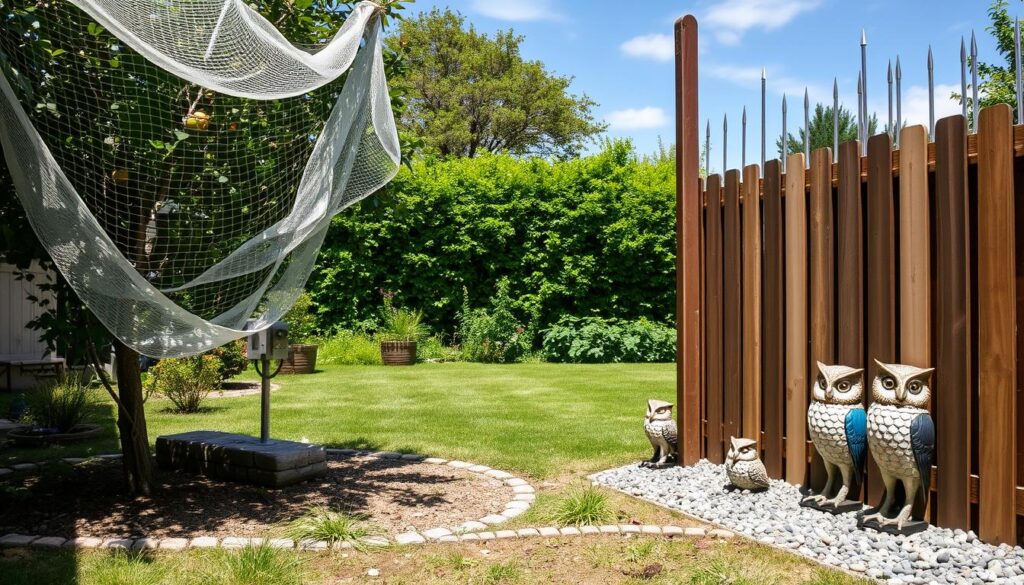
Garden Protection Strategies
Keeping birds out of your garden can be a challenge. But, with the right strategies, you can keep your plants and crops safe. You can use protective netting systems and strategic companion planting.
Protective Netting Systems
Installing sturdy netting over your garden is a reliable way to keep birds away. Fruits trees and shrubs are often damaged by birds like blackbirds and starlings. By putting netting over these areas, you can block birds from getting to your harvest.
Make sure to put up the netting before your fruits ripen. This way, you can stop birds from settling in.
Companion Planting Methods
Strategic companion planting can also help keep birds out. Herbs like rosemary, thyme, and mint can repel birds with their strong smells. Planting these herbs in your garden can act as a natural barrier.
Also, consider planting sacrificial crops in a separate area. This can distract birds from your main garden. Using row covers or tunnels to protect young seedlings is another effective method.
Using a mix of physical and natural deterrents can keep your garden bird-free. Remember, staying vigilant and using a variety of methods are key to a bird-free garden.
Water Feature Modifications to Deter Birds
To keep black birds away, changing your water features can help. Birds, like blackbirds, love calm water. By making water features less calm, you can keep them away.
One easy fix is to use moving water in birdbaths or fountains. The flow from sprayers or agitators in ponds makes the water less attractive to birds. For small ponds, try covering them with netting to block birds.
For bigger ponds, add floating decoys like alligator heads. These look like real predators and scare birds away. You can also use non-toxic colorants to make the water less appealing, keeping it pretty.
Using these water-based bird deterrents can keep blackbirds and others from visiting. A mix of different strategies works best to keep birds away.

Professional Bird Control Solutions
Dealing with persistent bird problems? Professional bird control services can help. They use advanced deterrents for long-term solutions. This includes bird wire systems, electrified track systems, and professional-grade repellents.
Professional bird control ensures you follow local laws. They keep up with new regulations. This means their methods are both effective and legal. They also create management plans to stop birds from coming back.
For big problems or large areas, they offer custom netting installations. These systems block blackbirds from certain areas. This protects your property from their damage. Working with bird control experts ensures your needs are met well.
“We’ve been impressed with the results of the professional bird control services. They were able to identify the root causes of our blackbird problem and implement a comprehensive solution that has kept them at bay for over a year now.”
Looking to stop crop damage, property damage, or just want peace and quiet? Professional bird control can change everything. They use their knowledge and techniques to keep black birds away and make your space bird-free.
Maintaining Long-Term Prevention
Keeping your property bird-free needs constant attention. Check your place often to make sure all bird-deterrent systems work well. Move around the visual deterrents like shiny ribbons or devices that startle birds. This keeps birds from getting used to them.
It’s important to keep your place clean of food that might attract birds. Also, change your yard to make it less appealing to birds. Watch out for birds trying to nest or roost, especially during nesting seasons. Teach your neighbors about bird control to help keep birds away from your area.
Change your bird-proofing plans if bird habits or migration patterns change. A mix of methods keeps birds away for good. This protects your property from damage and health risks caused by birds.
FAQ
What types of blackbirds are considered nuisance birds?
Nuisance blackbirds include crows, pigeons, sparrows, robins, and starlings. These birds are drawn to food around homes, like pet food left outside.
What attracts blackbirds to a property?
Blackbirds like food like insects, seeds, and fruits. They also need water, using fountains or standing water as birdbaths.
Are there any legal considerations for removing blackbird nests?
The Migratory Bird Treaty Act protects blackbirds. It’s illegal to move their nests. Homeowners should prevent problems instead of interfering directly. Always check local laws before acting.
How can I remove potential food sources to deter blackbirds?
To keep blackbirds away, prune holly trees and bushes. Remove wild berries and keep grass and hedges short. Also, cover pet food and water when not in use.
What are some natural and household items that can repel blackbirds?
Use aluminum foil, shiny streamers, and baking soda to repel blackbirds. Cayenne pepper spray and essential oils like peppermint and cinnamon also work well.
What types of visual deterrents can I use to scare away blackbirds?
Use reflective materials like CDs and aluminum foil to scare blackbirds. Motion-activated sprinklers or lights and decoys like plastic owls can also work.
Are there any sound-based deterrents that can keep blackbirds away?
Yes, use devices that mimic predator calls or distress signals. Ultrasonic devices and wind chimes can also make your yard less welcoming.
How can I protect my garden from blackbird damage?
Use netting over fruit trees and gardens. Plant sacrificial crops to distract birds. Consider using herbs that repel blackbirds.
What modifications can I make to water features to deter blackbirds?
Change still water to moving water in birdbaths or fountains. Add fountain sprayers or agitators in ponds. Cover small ponds with netting to block bird access.
When should I consider hiring professional bird control services?
For ongoing bird problems, consider professional services. They can install bird wire systems, electrified track systems, or custom netting.
How do I maintain long-term prevention of blackbird problems?
Regularly check and maintain deterrents. Rotate visual deterrents and keep the landscape clean. Stay alert during nesting seasons to quickly handle new nests.

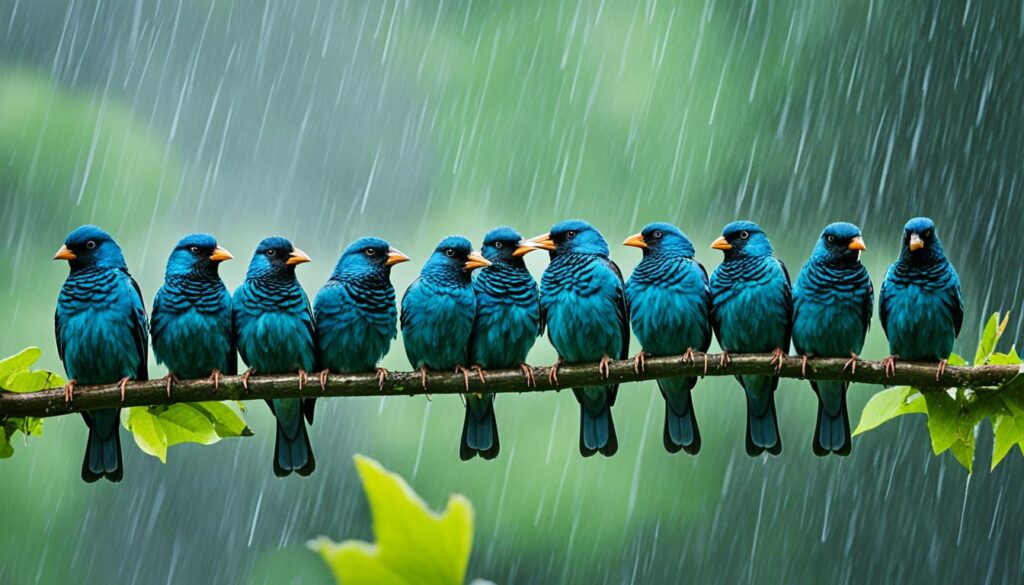
I’m really inspired with your writing talents and also
with the format for your weblog. Is this a paid theme or did you customize it your self?
Anyway stay up the excellent quality writing, it is uncommon to look a
nice blog like this one these days. Snipfeed!
маркетплейс аккаунтов соцсетей магазин аккаунтов социальных сетей
маркетплейс аккаунтов магазин аккаунтов
магазин аккаунтов продать аккаунт
продажа аккаунтов соцсетей https://prodat-akkaunt-online.ru/
маркетплейс аккаунтов соцсетей маркетплейс аккаунтов
перепродажа аккаунтов площадка для продажи аккаунтов
Accounts for Sale Account marketplace
Sell Pre-made Account Sell Pre-made Account
Profitable Account Sales Account Store
Sell Account Account Acquisition
Sell Account Buy and Sell Accounts
Accounts market Account Buying Platform
Sell Pre-made Account Accounts marketplace
Marketplace for Ready-Made Accounts Account Acquisition
Account Purchase Marketplace for Ready-Made Accounts
account exchange marketplace for ready-made accounts
account exchange accounts for sale
ready-made accounts for sale social media account marketplace
secure account purchasing platform account marketplace
account trading service account catalog
profitable account sales account sale
account exchange account sale
website for buying accounts secure account sales
accounts market gaming account marketplace
verified accounts for sale account buying service
profitable account sales social media account marketplace
secure account purchasing platform website for selling accounts
accounts market account sale
find accounts for sale sell accounts
account selling service marketplace for ready-made accounts
account market accounts for sale
sell accounts buy accounts
verified accounts for sale account market
buy account account trading
account catalog profitable account sales
gaming account marketplace account buying platform
ready-made accounts for sale online account store
online account store account marketplace
account selling service account buying service
profitable account sales account exchange
account buying platform website for selling accounts
website for buying accounts ready-made accounts for sale
buy accounts https://accounts-offer.org/
sell pre-made account https://accounts-marketplace.xyz/
account market https://buy-best-accounts.org/
accounts for sale https://social-accounts-marketplaces.live
verified accounts for sale accounts market
gaming account marketplace https://social-accounts-marketplace.xyz
secure account purchasing platform accounts marketplace
accounts marketplace buy-accounts-shop.pro
website for buying accounts https://buy-accounts.live
sell account https://accounts-marketplace.online
accounts marketplace https://accounts-marketplace-best.pro
покупка аккаунтов магазины аккаунтов
площадка для продажи аккаунтов rynok-akkauntov.top
маркетплейс аккаунтов https://kupit-akkaunt.xyz/
купить аккаунт https://akkaunt-magazin.online
биржа аккаунтов akkaunty-market.live
маркетплейс аккаунтов соцсетей kupit-akkaunty-market.xyz
маркетплейс аккаунтов https://akkaunty-optom.live
площадка для продажи аккаунтов маркетплейсов аккаунтов
купить аккаунт https://kupit-akkaunt.online
facebook ad accounts for sale buy facebook ads account
buy facebook ads manager https://buy-ad-accounts.click/
buy facebook account for ads https://buy-ad-account.top
buying facebook account https://ad-account-buy.top
buy account facebook ads https://buy-ads-account.work
buy fb account https://ad-account-for-sale.top
facebook account sale facebook ad account buy
buy facebook ads accounts https://ad-accounts-for-sale.work
buy aged google ads account buy adwords account
buy google ads invoice account https://buy-ads-accounts.click
facebook ad accounts for sale buy facebook profiles
buy google ad account https://ads-account-for-sale.top
google ads reseller https://ads-account-buy.work
adwords account for sale https://buy-ads-invoice-account.top
buy old google ads account buy verified google ads account
google ads agency account buy https://buy-ads-agency-account.top